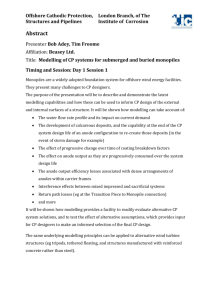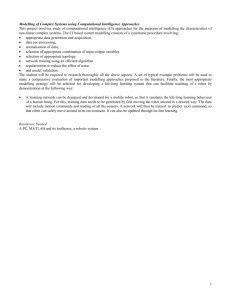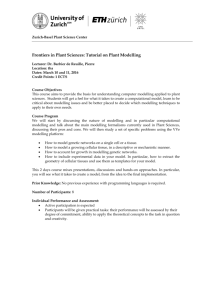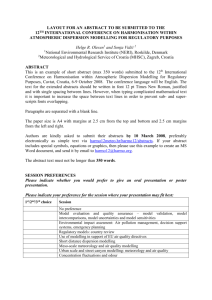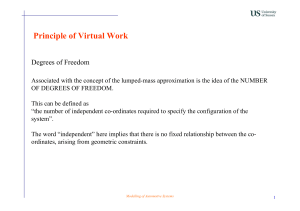Mike Bradley
advertisement
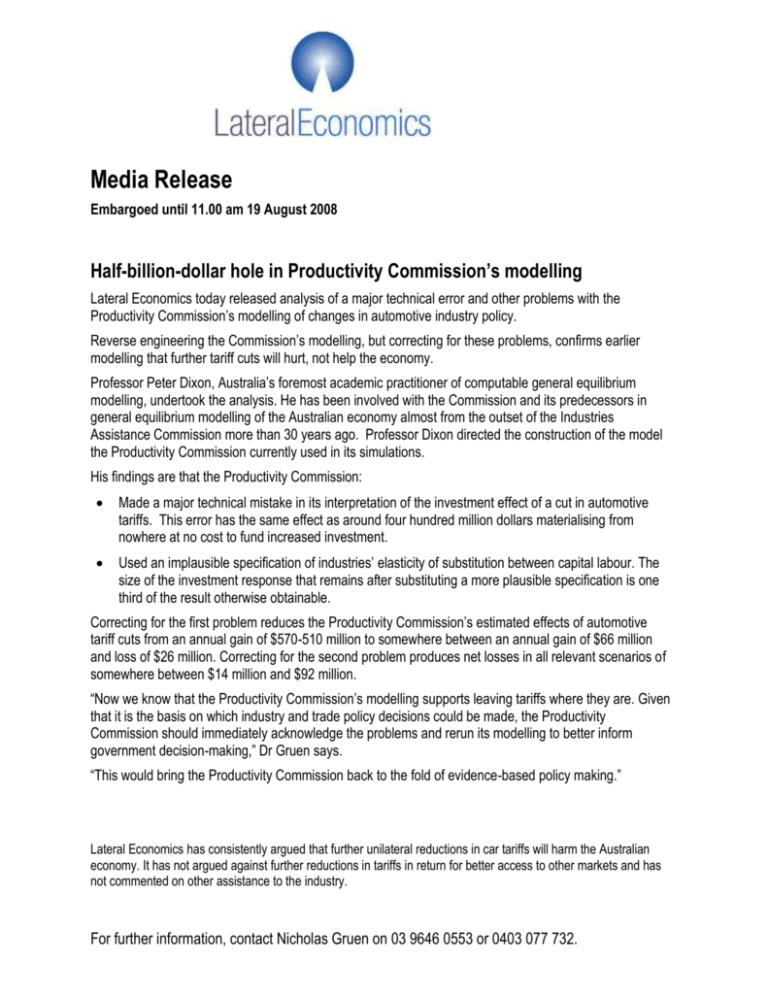
Media Release Embargoed until 11.00 am 19 August 2008 Half-billion-dollar hole in Productivity Commission’s modelling Lateral Economics today released analysis of a major technical error and other problems with the Productivity Commission’s modelling of changes in automotive industry policy. Reverse engineering the Commission’s modelling, but correcting for these problems, confirms earlier modelling that further tariff cuts will hurt, not help the economy. Professor Peter Dixon, Australia’s foremost academic practitioner of computable general equilibrium modelling, undertook the analysis. He has been involved with the Commission and its predecessors in general equilibrium modelling of the Australian economy almost from the outset of the Industries Assistance Commission more than 30 years ago. Professor Dixon directed the construction of the model the Productivity Commission currently used in its simulations. His findings are that the Productivity Commission: Made a major technical mistake in its interpretation of the investment effect of a cut in automotive tariffs. This error has the same effect as around four hundred million dollars materialising from nowhere at no cost to fund increased investment. Used an implausible specification of industries’ elasticity of substitution between capital labour. The size of the investment response that remains after substituting a more plausible specification is one third of the result otherwise obtainable. Correcting for the first problem reduces the Productivity Commission’s estimated effects of automotive tariff cuts from an annual gain of $570-510 million to somewhere between an annual gain of $66 million and loss of $26 million. Correcting for the second problem produces net losses in all relevant scenarios of somewhere between $14 million and $92 million. “Now we know that the Productivity Commission’s modelling supports leaving tariffs where they are. Given that it is the basis on which industry and trade policy decisions could be made, the Productivity Commission should immediately acknowledge the problems and rerun its modelling to better inform government decision-making,” Dr Gruen says. “This would bring the Productivity Commission back to the fold of evidence-based policy making.” Lateral Economics has consistently argued that further unilateral reductions in car tariffs will harm the Australian economy. It has not argued against further reductions in tariffs in return for better access to other markets and has not commented on other assistance to the industry. For further information, contact Nicholas Gruen on 03 9646 0553 or 0403 077 732.

